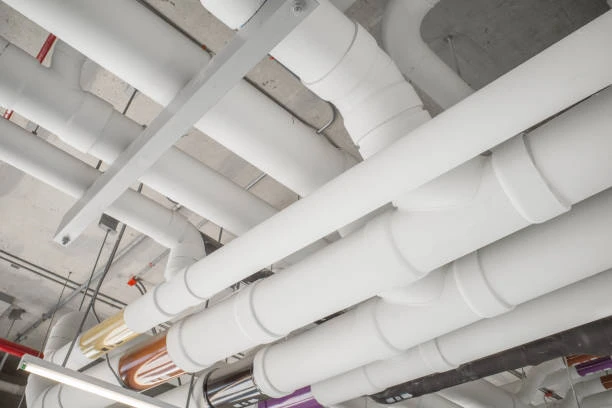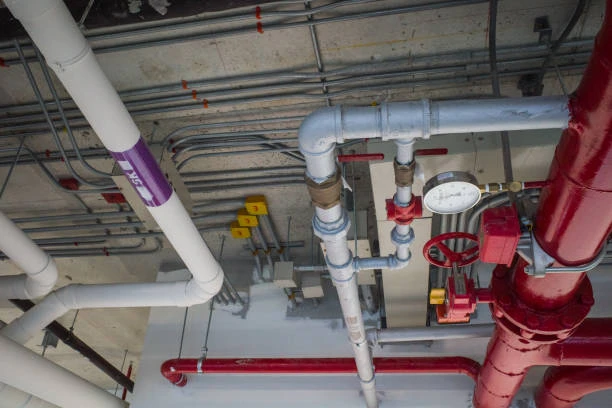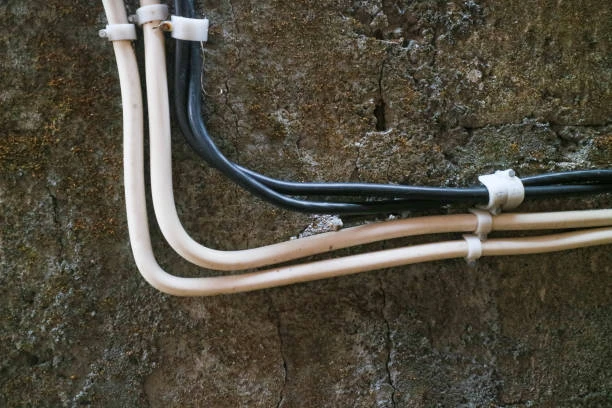Safe Application of Copper Ball Valves in Gas Pipeline Systems
Copper ball valves, including control valve, are critical components in gas pipeline systems, offering safe, reliable, and precise flow control. Their corrosion resistance, durability, and tight sealing capabilities make them ideal for handling flammable gases in residential, commercial, and industrial settings. In this article, we explore the advantages of copper ball valves, their applications in gas pipelines, and how to select the best control valves for your needs. We also provide a comparison with plastic valves, installation tips, and details about IFAN’s high-quality products that meet international standards.
Frequently Asked Questions About Copper Ball Valves
1. What is a copper ball valve?
A copper ball valve is a shut-off valve with a perforated ball that rotates to control the flow of gases or liquids in a pipeline.
2. Why are control valves made of copper used in gas pipelines?
Copper control valves provide excellent corrosion resistance, tight seals, and durability, ensuring safe gas flow management.
3. Are all copper ball valves suitable for gas pipeline systems?
Not all are gas-rated; choose valves specifically certified for gas applications to ensure safety and compliance.
4. How do I choose a high-quality control valve?
Look for pure copper valves with certifications like ISO and manufactured by trusted brands like IFAN.
5. Are copper valves better than plastic valves for gas pipelines?
Yes, copper valves offer superior durability and safety for gas systems, while plastic valves are unsuitable for flammable gases.
Definition and Features of Copper Ball Valves
Copper ball valves feature a hollow, perforated ball within a copper body that regulates gas or fluid flow. A quarter-turn of the handle opens or closes the valve, providing quick and precise control. Copper’s natural properties, including corrosion resistance and high strength, make these valves ideal for gas pipeline systems where safety is paramount. They withstand high pressures and maintain tight seals, preventing leaks in flammable gas environments.
Control valves within the copper ball valve family are designed for precise flow regulation, allowing operators to adjust gas flow with accuracy. Their smooth internal surfaces reduce friction, ensuring efficient flow, while copper’s ability to resist corrosion from gas impurities enhances longevity. Additionally, copper’s thermal conductivity ensures stable performance across a range of temperatures, making these valves reliable for gas pipeline applications.
Common Uses and Industries for Copper Ball Valves
Copper ball valves, including control valves, are widely used in gas pipeline systems across various industries due to their safety and reliability. Common applications include:
Residential Gas Systems: Control natural gas or propane flow to appliances like stoves and heaters in homes.
Commercial Buildings: Regulate gas supply in restaurants, hotels, and offices for heating and cooking.
Industrial Gas Pipelines: Manage gas flow in manufacturing plants or refineries handling flammable gases.
LPG Distribution: Control liquefied petroleum gas flow in storage and distribution systems.
Medical Gas Systems: Ensure safe delivery of oxygen or other gases in hospitals and clinics.
Control valves excel in applications requiring fine-tuned gas flow, such as balancing supply in multi-zone systems. Their robust design and leak-proof seals make them a trusted choice for industries prioritizing safety and efficiency.
Guide to Selecting Copper Ball Valves
Choosing the right copper ball valve, especially a control valve, ensures safe and efficient performance in gas pipeline systems. Consider these factors when selecting:
Material Quality: Opt for valves made from high-purity copper or quality alloys for maximum corrosion resistance and durability.
Finish and Appearance: A polished copper finish indicates high manufacturing standards and resistance to wear.
Certifications: Select valves that comply with standards like ISO 15874 or ASTM F2389, and ensure gas-specific certifications.
Gas Compatibility: Verify the valve is rated for the specific gas type (e.g., natural gas, propane) in your system.
Brand Reputation: Trust manufacturers like IFAN, known for producing reliable and cost-effective valves.
Consult a gas system engineer to match the valve’s specifications with your pipeline’s requirements, ensuring safety and compliance with regulations.
Installation Tips for Copper Ball Valves
Proper installation of copper ball valves, including control valve models, ensures safe operation and prevents gas leaks. Follow these tips for a successful setup:
Verify Compatibility: Confirm the valve suits the pipe material (copper, steel, or PEX) and gas system specifications.
Clean Pipes: Remove debris or residues from pipes before installation to avoid blockages or valve damage.
Use Gas-Rated Sealants: Apply gas-approved thread sealant or Teflon tape to threaded connections to ensure a leak-proof seal.
Align Correctly: Install the valve in the correct orientation, following the manufacturer’s flow direction indicators.
Test for Leaks: After installation, perform a soap-and-water leak test or use a gas detector to confirm no leaks.
Avoid over-tightening the valve during installation to prevent damage to the threads or body, especially in high-pressure gas systems. Always follow local gas safety codes and regulations.
Comparison: Copper Valves vs. Plastic Valves
Feature | Copper Valves | Plastic Valves |
|---|---|---|
Durability | High, lasts decades | Moderate, may degrade |
Corrosion Resistance | Excellent against gas impurities | Limited, unsuitable for gas |
Pressure Tolerance | Handles high pressure | Suitable for low pressure |
Temperature Tolerance | Withstands high temperatures | Limited to low temperatures |
Cost | Higher initial cost | Lower initial cost |
Applications | Gas pipelines, industrial | Water, irrigation |
Copper valves, particularly control valve models, are far superior to plastic valves for gas pipeline systems due to their durability, safety, and compatibility with flammable gases.
Conclusion
Copper ball valves, including control valves, provide safe and precise flow control in gas pipeline systems, ensuring reliability and leak-free performance. Their corrosion resistance, durability, and ability to handle high-pressure gases make them ideal for residential, commercial, and industrial applications. By choosing high-quality valves from trusted manufacturers like IFAN, you ensure long-term safety and efficiency. Whether you’re managing a home gas system or an industrial pipeline, copper ball valves deliver the performance needed for success. Follow the installation tips and select products that meet international standards to optimize your gas system’s safety and reliability.
Connect with IFAN
IFAN is a Chinese manufacturer of plastic pipes, fittings, and valves with 30 years of experience. If you are interested in IFAN copper fittings, copper valves, plastic pipes, and fittings, please contact us. IFAN offers you a variety of standard pipes to meet your specific needs. Click below to learn more about IFAN’s wide range of affordable and cost-effective valve products and piping system-related products.
We will reply to your email or fax within 24 hours.
You can call us at any time if there is any question about our production.
For more information,pls visit our webside https://waterpipefitting.com/
Pls Mailto: [email protected]
Whatsapp: +86 15088288323
IFAN Products International Standards
IFAN products strictly adhere to a comprehensive range of international standards, encompassing ISO 15874, EN 15874, ASTM F2389, DIN 8077/8078, GB/T 18742, NBR 15884, ISO 15494, EN ISO 15494, GB/T 19472, NBR 15494, ASTM 2846 (501), DIN 8079/8080 (502), ASTM F441/F441M SCH80 (503), DIN (504), DIN (505), GB/T 18993, AS/NZS 1477, CSA B137.6, NSF/ANSI 14, TIS 17-2532/1131-2535, BS 3505, BS 4346 (801), ASTM D1785 SCH40 (802), ASTM D1785 SCH80 (803), DIN (804), GB (805), GB (806), GB(901), DWV(902), ASTM D2665 (903), along with ASTM D2241, D2665, D2729, and F441/F441M series, ISO 1452, EN ISO 1452, DIN 8061/8062, GB/T 10002, AS/NZS 1477, JIS K6741, CSA B137.3, and other national and industry norms.














Recent Comments